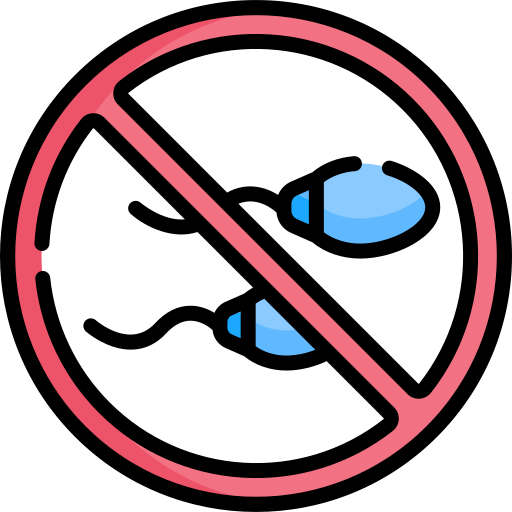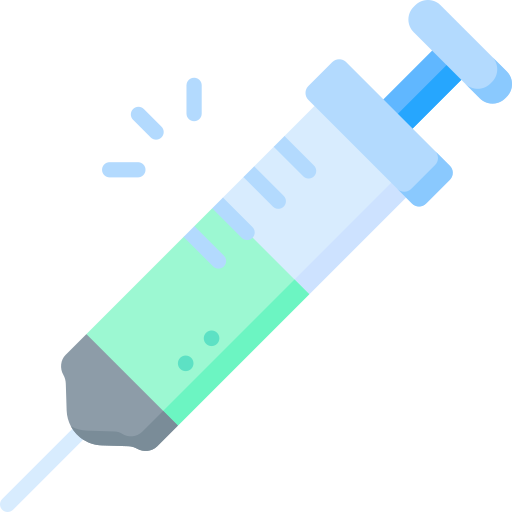Imagine getting a quick shot in the outer part of your upper arm or your butt cheek and then not having to worry about pregnancy for three whole months.
That's exactly what the birth control shot Depo-Provera is! It's 99% effective at protecting you against unwanted pregnancies and requires no uncomfortable long-term insertions in your body. And it's cheap!

The shot consists of the hormone progestin, which prevents ovulation and thickens cervical mucus in your body. This prevents the sperm from getting through and the egg isn't released.

And as a result, no baby worries!
But wait, is there a downside to this?
All medicines have some side effects, but you should be kept in mind that Depo-Provera doesn't protect you from contracting STIs. This is why you should encourage your partner to still wear a condom and/or get tested for STIs. The shot combined with a condom gives you maximum pregnancy protection.
Also, the shot usually takes a week to become effective so make sure you're using a backup contraceptive option during that week.
Besides this, there are some short-term side effects that are common which include:
Weight changes
menstrual changes (heavier or lighter periods)
Abdominal pain or discomfort
Weakness or fatigue
Moodiness or depression
Headaches
Sore breasts
Nervousness or confusion
Dizziness or nausea

The birth control shot can also lead to mild pain and minor skin changes or reactions in the area where the shot was administered. These usually go away after a day or two.

Some research indicates that using the birth control shot for more than 2 years can lead to bone loss or loss of calcium, which can lead to osteoporosis and broken bones after menopause.
In rare cases, the birth control shot led to some people developing blood clots. Clots can quickly impact your lungs, heart, or brain. If you experience chest pain or discomfort after the shot, you should immediately go to a healthcare facility and speak with a professional.
What are the key advantages of using it compared to other contraceptive methods?

If you often forget to take the pill on time every day, this might be a no-fuss solution.
While it's recommended that a healthcare professional administer the shot, you can also give it to yourself if you have training with injections.
For people who have heavier menstrual cycles, this shot might make cycles lighter and less painful.
If you have a partner or family member who controls your birth control choices, this might be a way for you to exercise your choice discreetly.
If you're scared of invasive procedures like IUDs or implants, this might feel safer for you.
In many countries, it's available to buy at affordable rates without a prescription from a doctor.
Who can administer it and how?
Initially, it's important to get the birth control shot from a doctor or a reproductive health center. Later on, when you're comfortable, you or your partner can administer it at home.

In case you decide to self-administer, have alcohol pads and the prefilled syringe on hand. The best time for the shot is the first day of your period till the fifth day.
Some quick steps to get you started:
Wash your hands with soap.
Remove the syringe and shake it to mix the medication.
Tap the syringe holding it up to push any air bubbles out.
Pick an easy injection site like your upper thigh or belly.
Wipe your skin with an alcohol pad where you plan to prick yourself, then dry it.
Take needle cap and hold the syringe with one hand while the other hand holds the skin around the injection site.
Slowly insert the syringe into the skin at a 45-degree angle.
Press the syringe into your skin and keep the needle in while counting to 5.
Remove the needle and dispose of it safely.
Apply pressure to the spot where the needle entered.
Who should not take the birth control shot?

Doctors do not recommend women taking Depo-Provera after the age of 50. For those with preexisting conditions like vaginal bleeding, clots, or liver disease, the shot is not a good option.

On the other hand, even women who are breastfeeding or have given birth can have the shot right away.

How can I better plan and schedule my birth control shot?

The most important thing to remember is to get the shot 4 times a year. That means you must get each shot within 12-13 weeks or every 3 months. You can remind yourself by scheduling an appointment beforehand and putting the date in your calendar.
Take Action

Before you decide to get the birth control shot:
Your feedback matters to us.
This Byte helped me better understand the topic.
